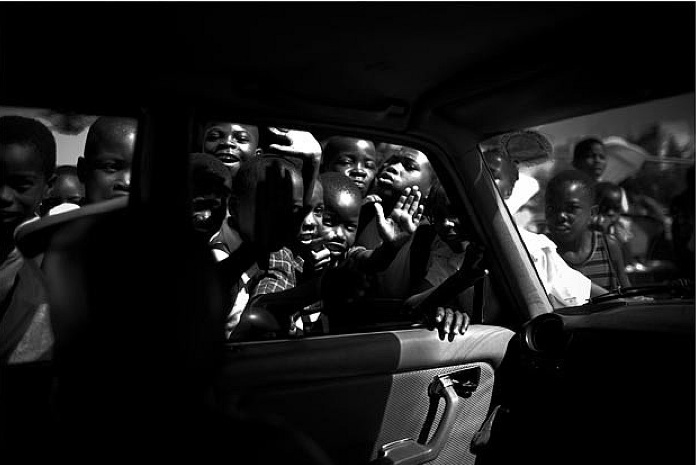
"Kony 2012" was a revolution. Through the medium of the web, namely social-networking, a single 30-minute video was spread, teaching millions of people about the actions of war lord Joseph Kony and the sickening situation occurring in Uganda. Momentarily, the power of the Internet to inspire worldwide change was inarguable: Instantaneously, people were learning and "liking" the video, compelling the average person to help bring this effort to life.
Despite this, Invisible Children's campaign to make Kony, the L.R.A. (Lord's Resistance Army) leader, famous was almost immediately met with just as much criticism as with support. Al Jazeera called the approach of Invisible Children to be evident of "the warmongering, the narcissism, the commercialization, the reductive and one-sided story they tell, their portrayal of Africans as helpless children in need of rescue by white children."
The people of Uganda also voiced an opinion, evident in a YouTube video about reactions to a "Kony" Screening in Uganda. The video interviews personal victims of Kony's attacks from the Northern Uganda area. One man, by the name of Leo Dongo, claims to "support the campaign for Kony's arrest but thinks that some of the promotion methods sound offensive." Dongo continues:
If people in those countries care about us, they will not wear t-shirts with pictures of Joseph Kony for any reason, that would celebrate our suffering.
The video concludes that, "'Kony 2012' may be the most watched video on YouTube this year, but it clearly doesn't resonate with many of the people it claims to help."
What seems to be the most popular piece of damaging news to the credibility of the campaign, at least in the eyes of the American people, came from yet another YouTube video that exploited director, Jason Russell, having a nude and very disruptive public meltdown -- a stark and shocking contrast to his portrayal in the "Kony 2012" film. Of course, Invisible Children released statements defending their director's unruly actions as a product of exhaustion. While no charges were pressed against Russell, the "Kony 2012" video that reached 76 million people now surrounds constant controversy and claims of hypocrisy.
The question that lingers in my mind is: How will Russell's actions jeopardize the way people regard the "Kony 2012" campaign? How will this single incident affect the way we remember the campaign's initial influence? Will Joseph Kony ever be transformed from a household name into a convicted mass-murderer, or will the quest to stop the innocent killing in Uganda die out as a mere fad, a PR ploy gone terribly wrong?
I truly believe the original intent of the "Kony 2012" campaign will ultimately be resurrected. After all, it was the youth and our generation, collectively, that made its mission at all possible. We must recall that it is not Jason Russell that the video wanted to make famous but Joseph Kony--in hopes to terminate his terrorizing. And I sincerely hope that one day soon, we do.
(Photo by Peter Reid under a Creative Commons license)
This post originally ran on ConsiderOnline.org.